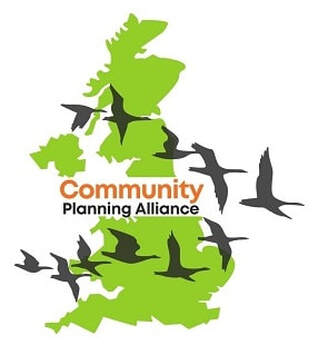(Site Path: Resources | CPA Consultation Responses)
CPA Consultation Responses
|
CPA responds to as many consultations as we can that are relevant to the planning system or natural environment.
These are mainly to DLUHC (the Department for Levelling-up, Housing and Communities), and to DEFRA (Department for Farming and Rural Affairs). We also make submissions to Inquiries and Committees at the House of Commons and House of Lords.
Responding to consultations can be time consuming and onerous, but please let us know if you are aware of a new national consultation.
|
(Image by KamranAydinov on Freepik)
|
CPA Submission to DLUHC: Street Vote Development Orders - February 2024
CPA submission on 1st February 2024 on government plans for Street vote development orders, described as "an innovative new tool that will give residents the ability to propose development on their street and, subject to the proposal meeting certain requirements, vote on whether that development should be given planning permission."
Link: CPA Submission
CPA Submission to Competition and Markets Authority: The Housing Market - December 2023
The CMA has published the initial findings of its housebuilding market study, and is suggesting far-reaching, community-excluding, changes to the planning system.
Obviously, no-one would disagree with its starting premise that everyone needs a place to live. But this study has blundered straight into the elephant trap and assumed that the market (developers) can deliver all housing need. The seemingly dramatic under-delivery against housing targets that the report cites is because the market will not meet social housing needs. It never has.
There are two studies, and a series of detailed questions in the reports themselves.
Obviously, no-one would disagree with its starting premise that everyone needs a place to live. But this study has blundered straight into the elephant trap and assumed that the market (developers) can deliver all housing need. The seemingly dramatic under-delivery against housing targets that the report cites is because the market will not meet social housing needs. It never has.
There are two studies, and a series of detailed questions in the reports themselves.
Link: CPA Submission
CPA Submission to DLUHC: Reforms to Plan-making - September 2023
CPA submission on 6th September 2023 to Government proposals to make plans simpler, faster to prepare and more accessible. We agree that local plans do need standardising, digitising and simplifying, and communities do need to be engaged better and earlier, so the proposals set out in this consultation are a positive step forward. We propose a Community Engagement soundness test for Inspectors to evaluate at examination stage.
Link: CPA Submission
CPA Submission to DLUHC: Reforms to Permitted Development Rights - September 2023
CPA submission on 6th September 2023 on plans to extend PD rights. In general we are in principle very supportive of the need to re-use existing buildings for housing and, in the countryside, also for commercial purposes. But Permitted Development powers are already extremely wide ranging - in some cases far too wide ranging already and we explain our concerns.
Link: CPA Submission
CPA Submission to DEFRA: Protecting Hedgerows - July 2023
On July 12th 2023 CPA made a submission to DEFRA in reponse to its consultation on protecting hedgerows
Link: CPA Submission
CPA Submission to National Highways: RIS3 Shaping the Future of England's Strategic Roads - June 2023
CPA made a submission on 21st June 2023 to the proposals made in National Highways’ Initial - Report Shaping the future of England's strategic roads. The report outlines National Highways’:
- view on the current state of the strategic road network (SRN)
- potential future needs
- proposed priorities for the next road period (RP3), covering the financial years 2025-26 to 2029-30
Link to National Highway's Consultation: shaping-the-future-of-englands-strategic-roads
Link: CPA Response
Link: CPA Response
CPA Submission: Strategy and Policy Statement for Energy Policy - June 2023
In June 2023 the government held a consultation on its policy for the delivery of energy infrastructure and how to provide the legal framework for planning decisions. The link to the consultation page and the accompanying policy statements, the link is here:
Link: CPA Submission
CPA Submission to the Commons Levelling-Up Committee: Planning Reform - March 2023
CPA submission stating that we support in general the aims of the Levelling Up and Regeneration Bill (LURB), for a genuinely plan-led system, stronger voice for communities, community infrastructure by developers, clear design standards that reflect community views, enhanced protections for our precious environmental and heritage assets.
CPA Submission: Reforms to National Planning Policy - February 2023
CPA submission to proposals in the Levelling Up and Regeneration Bill (LURB) on Reforms to National Planning Policy, where we suggested a better method of calculating housing "need, and a much more sensible Standard Method with constraints included at the start, and using uptodate household and affordability projections.
Link: CPA submission
CPA Submission: Proposals to reform the Human Rights Act - March 2022
Article 6 of the Human Rights Act protects our rights to a fair and public hearing. This means that if a public authority is making a decision that has a impact upon your civil rights or obligations (in this context, your civil rights and obligations are those recognised in areas of UK law such as property law, planning law, family law, contract law and employment law) you have a right to a fair and public hearing, which is held within a reasonable time, giving you all the relevant information, allows you representation and is followed by a public decision. In addition, you also have the right to an explanation about how the decision-making authority reached its decision.
CPA Submission to National Highways: RIS3 Route Strategies Consultation - December 2021
In December 2021, CPA submitted a response to National Highways consultation on Road Investment Strategies 3.
We said that Government should stop building new roads, as the Austrian government has recently announced, but that in the event that the RIS3 programme does go ahead then there need to be changes to the way options are evaluated.
We would like alternatives to be compared directly with new roads, and we believe that externalities such as illness from air and noise pollution, plus road deaths and injuries, should be taken into consideration. We also believe that a natural capital assessment must be made of all habitats to be lost if a road is built.
CPA Submission: National Infrastructure Planning Reform Programme Consultation - December 2021
In December 2021, the CPA submitted a detailed response to the National Infrastructure Planning Reform Programme consultation.
We are concerned that the consultation focuses on speed and that the current system is too reliant on infrastructure projects that are proposed at a stage at which alternatives (that may be better for communities, the planet and the public purse) are not able to be considered.
The passing of the Environment Act provides the ideal opportunity to take a new approach. We must start by defining the problem, and then enable all stakeholders to discuss the full range of solutions. Read the rest of our suggestions by clicking on the link below.
CPA Submission: Ox-Cam ARC Spatial Framework Consultation - October 2021
In October 2021, CPA submitted a response to the consultation, “Creating a vision for the Oxford-Cambridge Arc”.
We said that any future framework produced for the area needs to be evidence-led and community-driven, and must minimise damage to the environment.
If this consultation is to be genuine, with outcomes not already pre-decided, as indications in press coverage in recent years would lead one to believe, it must also consider seriously two further alternatives. One of those being a 'do-nothing' strategy of no spatial framework for the Arc, and the other, a spatial framework that delivers only local housing need and associated infrastructure.
Our full submission is available to read at the link below.
CPA Submission to the Lords Select Committee for the Built Environment - September 2021
In September 2021, CPA submitted a response to the House of Lords Built Environment Committee, which launched an inquiry on the demand for new housing in the UK and how barriers to meeting this demand can be overcome.
In summary we proposed that the inquiry should recommend the following actions:
- A review of the national housing target, with Census 2021 data as the trigger;
- That Government policy should deliver for housing need, not just demand, and for renters as well as home buyers, while investment in social housing must be prioritised;
- The need for far greater and more meaningful community participation, not less, across the planning system, so that outcomes are improved for everyone. And that genuine community participation should be a core component of all future planning policy, including mandatory referendums for Local Plans.
You can read our full submission by clicking on the link below.
Do you have or know of any resources that should be included in this library?
If so, please contact us today!


